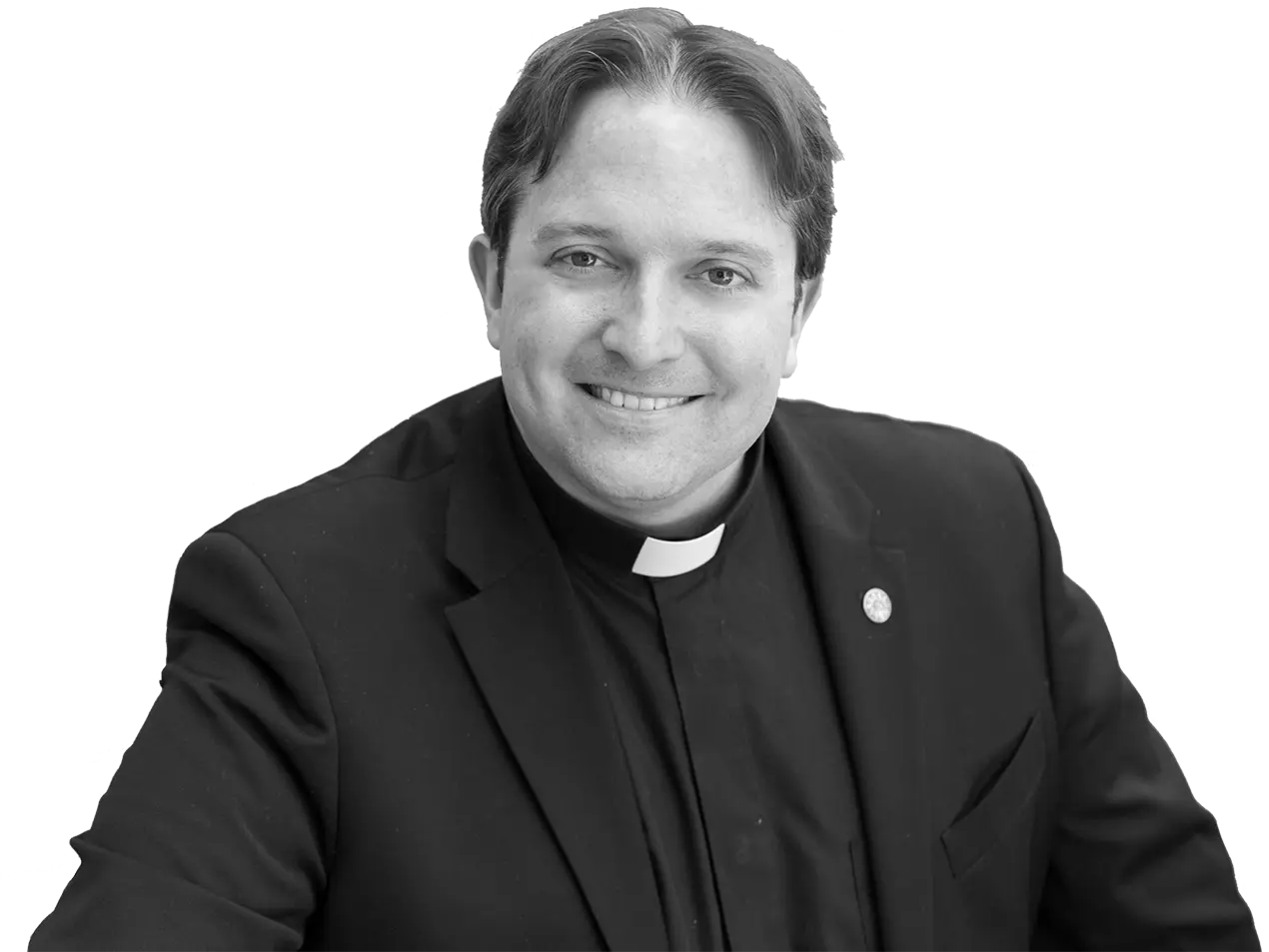 Fr Matthew Charlesworth SJJesuit PriestSociety of JesusJesuit priest working in Southern AfricaFr. MatthewCharlesworthSJ
Fr Matthew Charlesworth SJJesuit PriestSociety of JesusJesuit priest working in Southern AfricaFr. MatthewCharlesworthSJ
 2nd Sunday in Ordinary Time
2nd Sunday in Ordinary Time
Date: | Season: Ordinary Time before Easter | Year: C
First Reading: Isaiah 62:1–5
Responsorial Psalm: Psalm 96:1–3, 7–10
| Response: Psalm 96:3
Second Reading: 1 Corinthians 12:4–11
Gospel Acclamation: 2 Thessalonians 2:14
Gospel Reading: John 2:1–11
Preached at: the Chapel of the Most Holy Name, Kolvenbach House in the Archdiocese of Lusaka, Zambia.
There is something undeniably beautiful about the moment when a wedding feast reaches its crescendo—the music swells, laughter fills the air, and the ordinary gives way to something almost transcendent. It is in just such a moment that Jesus performs his first sign, transforming water into wine. And not just any wine—the best wine. The kind that lingers on the tongue and reminds us that God does not ration his gifts but lavishes them upon us, that his abundance is not mere sufficiency but extravagant generosity.
This moment at Cana is not just a miracle—it is a revelation. A revelation of who Jesus is and what he has come to do. It is a signpost pointing toward the hour when he will pour out something far greater than wine: his very self, the blood of the new and eternal covenant. In the grand symphony of salvation history, this is the overture, setting the stage for the ultimate act of love.
Isaiah’s voice echoes through the centuries, proclaiming the restoration of a desolate land and a people once forsaken. “You shall be called ‘My Delight,’ and your land ‘Espoused.’” To a people battered by exile, these words were more than poetry—they were life itself, a promise that their suffering was not the final word. And so it is with us. We, too, live in a world that can feel desolate, in a time that can seem abandoned. The struggles of our communities—the poverty that lingers, the corruption that festers, the cries of the vulnerable that too often go unheard—tempt us to believe that God is distant. But Isaiah will not let us forget: God is not done. His promise is not spent. He is still at work, still restoring, still delighting in his people.
The psalmist exhorts us to “proclaim his marvelous deeds to all the nations,” to let the world know that our God is not a mere regional deity, but the Lord of all creation, the One who sets the stars in their courses and yet knows each of us by name. This is not just a theological truth; it is a call to action. If we believe in a God who rules the heavens and the earth, then we must also believe in a God who demands justice on that same earth. We must believe in a God who cares about how we treat the poor, how we welcome the stranger, how we care for the least among us.
St. Teresa of Calcutta understood this. She saw in the poorest of the poor the face of Christ, the same Christ who once turned water into wine, the same Christ who continues to transform the brokenness of our world into something radiant with grace. She did not wait for some grand moment to begin serving; she simply looked around and loved those who were in front of her. What if we did the same? What if we allowed ourselves to be vessels of that same transforming love?
St. Paul reminds the Corinthians that each of us has been given gifts—not for our own sake, but for the good of the whole. Some have the gift of wisdom, others the gift of healing, others the gift of faith. No one has been left empty-handed. And yet, how often do we allow our gifts to remain unused? How often do we convince ourselves that our contribution is too small, that someone else is better suited to the work? But the Spirit does not make mistakes. The same Spirit that hovered over the waters at creation, that overshadowed Mary at the Annunciation, that descended like fire at Pentecost—that Spirit has been given to you. To each of us. Not for our glory, but for the building up of the Body of Christ.
So we find ourselves at a crossroads. The readings today are not mere history lessons. They are invitations. Invitations to believe that God’s promises are still unfolding. Invitations to see his abundance, not just in the miraculous, but in the ordinary moments of our lives. Invitations to take seriously the gifts we have been given and to use them for the sake of the Gospel.
And so, I leave you with three questions to carry into the week ahead:
- First, where in your life do you need to believe that God is still at work? Where have you been tempted to despair, to think that restoration is impossible?
- Second, how are you being called to proclaim God’s marvelous deeds? Not just with your words, but with your life, with your choices, with your actions?
- And finally, what gifts has the Spirit given you for the good of the Church? Have you been using them? If not, what is holding you back?
The wedding feast has begun. The water has been turned to wine. The best is yet to come. Let us live as if we believe it.